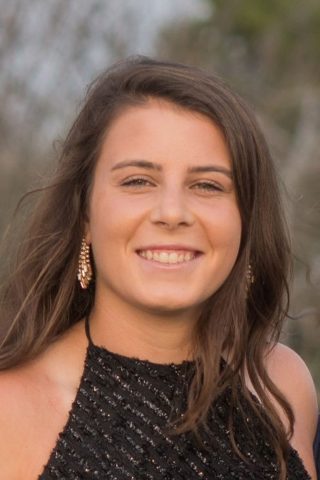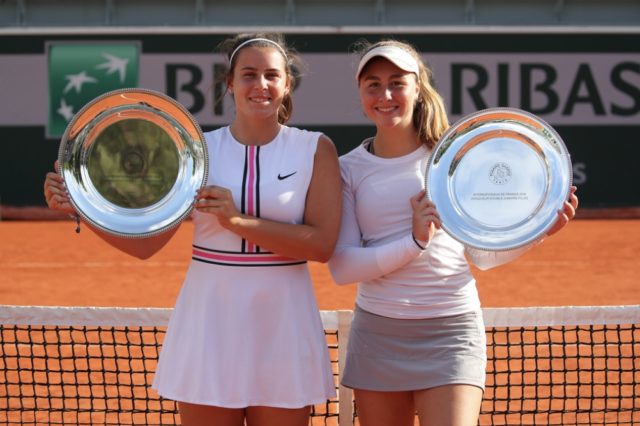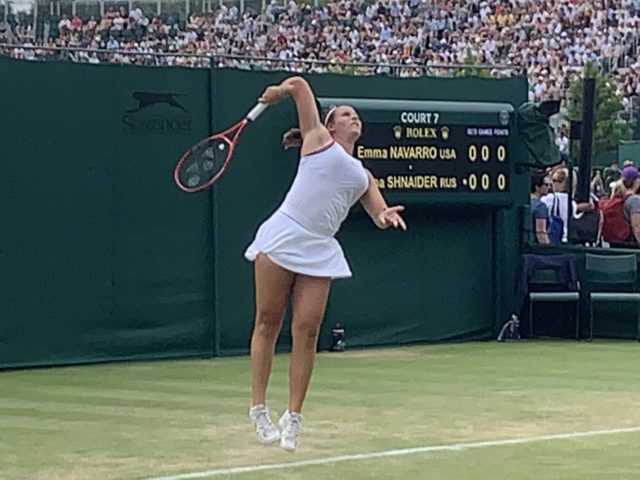Alumni Spotlight
CDS Welcomes Back Alumni
On November 30, 2020, Charleston Day School was honored to welcome back to campus Gerverus Flagg (’07) and his sister,...
The two biggest things Charleston Day taught me were independence and resilience.
 1. In June, you and your tennis partner, Chloe Beck, won the girls doubles championship at the Junior French Openin Paris. You also made it to the singles finals. In July, you made it to the quarter-finals in girls singles at JuniorWimbledon. You are now #4 and the top American in the junior tennis world ranking. Would you describe your years of hard work and preparation to get to this level of tennis?
1. In June, you and your tennis partner, Chloe Beck, won the girls doubles championship at the Junior French Openin Paris. You also made it to the singles finals. In July, you made it to the quarter-finals in girls singles at JuniorWimbledon. You are now #4 and the top American in the junior tennis world ranking. Would you describe your years of hard work and preparation to get to this level of tennis?
I really started to get serious about tennis in fourth grade. I would get up at around 5:45 a.m. and go play tennis for about an hour before school. Although I’m pretty sure I drove Mrs. Tonks crazy with my tardiness every morning, that was when I started to understand the sacrifices I was going to have to make to achieve my goals in tennis.
I would go back out to the courts after school, come home, finish my homework and get to bed early enough to have a decent night’s sleep before I did it all again the next day. Year by year I started devoting more and more of my time to tennis. Although I have had to make certain sacrifices, and it’s taken many years of hard work and dedication, I wouldn’t take back any of it.

Award ceremony with Chloe Beck at the junior French Open.
2. The Post and Courier recently wrote, “Navarro has shown time and time again that she doesn’t yield in the face of pressure.” What factors in your life have contributed to developing that tenacity and strength?
The past ten years or so of traveling and working hard on and off the court has allowed me to become very independent. That independence has helped me to work through any pressure or adversity that I’m faced with. I have learned to be patient and to put my best foot forward in any situation. I can also thank my family, specifically my parents, who raised my siblings and me on the principles of hard work and resilience. When we were growing up, my dad’s favorite phrase was “never give up,” and although slightly cliché it has shaped my attitude toward anything I do, even today.

At Wimbledon junior championship, Navarro played on grass and had to adapt her game to a completely different surface than the red clay (her favorite) she enjoyed at the junior French Open.
3. You are a senior at Ashley Hall this year. What is a typical week for you as a high school student and world class tennis player? How do you manage both?
A typical week as a high school student and an international tennis player is definitely a little hectic and overwhelming at times. Some of my friends joke that I lead a double life, and they’re not completely wrong. I’m sometimes away from home and school for weeks at a time, playing tournaments all over the world. Traveling is definitely tiring, but the experiences we get to have on the road always make up for that or any home sickness. When I am at home, my typical week day usually starts at around 7:00 a.m. with either fitness or yoga. After that, I practice on the court for a couple of hours and then head to school. I am usually at school for about four to five hours, depending on the day. After school, I go back to the courts to practice for a couple more hours before heading home. It’s challenging to manage both school and tennis, but I’ve been attempting to do so basically my whole life, so I’m pretty used to it.
4. How did Charleston Day School prepare you for what you are doing now? What are your favorite memories of CDS?
I look back at my years at Charleston Day School incredibly fondly, and I hope everyone there now appreciates the atmosphere around them. I remember a time when each of my three siblings and I were all at Charleston Day, and I could name every person in the entire school. I think that was a testament to how much of a family everyone was and still is throughout the whole school. I think my favorite CDS memories were at field day. I looked forward to that day all year and remember going all out every time it came around. Music class with Mrs. Hawkins was also one of my favorite memories. I still regularly show off my jazz hands. The two biggest things Charleston Day taught me were independence and resilience. I learned how to figure things out on my own and stand up for myself. I learned how to be tough and never give up even in the toughest of situations.
5. Do you have any future goals for your tennis career, education and beyond?
After high school, I’m planning to attend The University of Virginia. After college, my goal is to play tennis professionally and just see how far I can go in the sport.
6. What do you do for fun or to recharge? Do you have any hobbies or passions outside of tennis?
It’s very rare that I have a lot of free time on my hands, so when I
do, I like to spend as much time with my family and friends as I can. Traveling has definitely made me appreciate the people around me and the people back home.
7. Tennis has taken you all over America and the world—to France, Italy, Great Britain, Canada, Belgium and Australia. Do you have any interesting travel stories?
Traveling is always an adventure, especially to non-English-speaking countries. The best thing about traveling is meeting people from other cultures and being able to connect with them despite how different you are from one another.
8. What is the most valuable piece of advice you have ever received? What advice would you have for a Charleston Day student?
The best advice I have ever received is: Never do anything with less than a full effort. I take this advice with me into anything I’m doing. Nothing’s worth doing if you’re not going to do it to the best of your ability. My biggest advice for any Charleston Day student would be: Appreciate your teachers and appreciate the school you go to because it’s very special. My second piece of advice would be: Work hard. Nothing will prepare you for the future like hard work.
9. Last question…CDS Red or Blue – which are you?
Red team all the way!!
On November 30, 2020, Charleston Day School was honored to welcome back to campus Gerverus Flagg (’07) and his sister,...
Making CDS History This first grader became the fourth generation in his family to attend Charleston Day School. We are so...